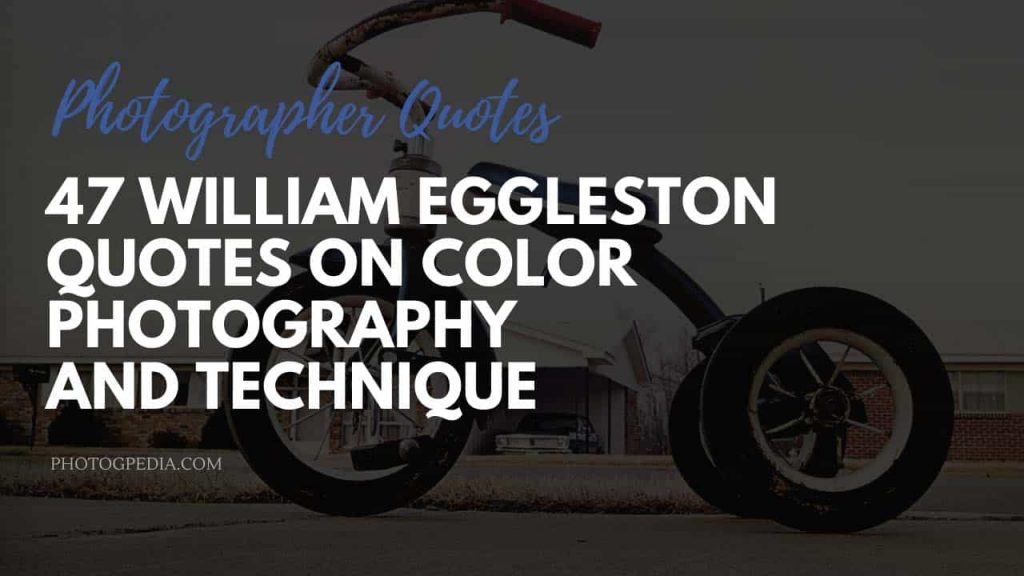Looking for the best William Eggleston quotes? Then you’ve come to the right place. Below we have compiled a list of our favorite quotes from the pioneering color photographer to inspire and help take your photography to the next level.
William Eggleston Quotes
Everything [in a photograph] works, or nothing works.
I am afraid that there are more people than I can imagine who can go no further than appreciating a picture that is a rectangle with an object in the middle of it, which they can identify.
You become technically proficient whether you want to or not, the more you take pictures.
I’ve also never had favorite pictures. Or subjects. I have this discipline of treating everything equally – I used to say “democratically.”
Photography just gets us out of the house.
Whether a photo or music, or a drawing or anything else I might do – it’s ultimately all an abstraction of my peculiar experience.
There are a lot of unseen projects. When a project is finished, I often physically, and in my mind, set it aside, intending something to happen with it, something that does or does not always happen. Now, a lot of these are being resurrected for the public.
I am at war with the obvious.
You can take a good picture of anything. A bad one, too.
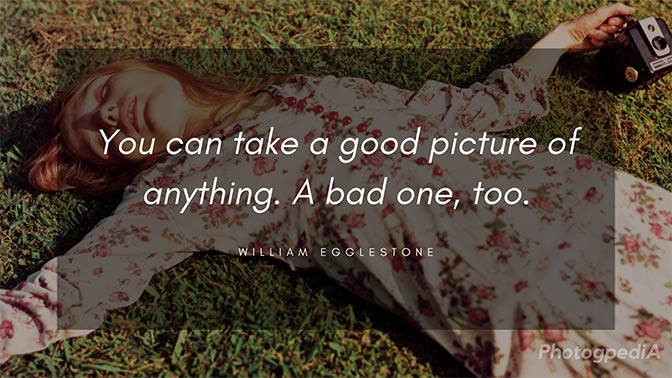
Photography Style
I want to be clear about something. The artist… if the thing is in that person to do, it will find a way out. Doesn’t matter where you plant it.
I want to make a picture that could stand on its own, regardless of what it was a picture of. I’ve never been a bit interested in the fact that this was a picture of a blues musician or a street corner or something.
I don’t have a burning desire to go out and document anything. It just happens when it happens. It’s not a conscious effort, nor is it a struggle. Wouldn’t do it if it was. The idea of the suffering artist has never appealed to me. Being here is suffering enough.
There is no particular reason to search for meaning.
I had this notion of what I called a democratic way of looking around, that nothing was more or less important.
Often people ask what I’m photographing, which is a hard question to answer. And the best what I’ve come up with is I just say: Life today.
Whatever it is about pictures, photographs, it’s just about impossible to follow up with words. They don’t have anything to do with each other.
The immediate reviews were very hostile, but they didn’t bother me – I had the attitude that I was right. The poor guys who were critics just didn’t understand the works at all. I was sorry about that, but it didn’t weigh on my mind a bit.
Words and pictures don’t – They’re like two different animals. They don’t particularly like each other.
I don’t think that has ever changed. I don’t think I see any more or any less than I did years ago. Let’s say I have the print of a photo taken in the 1960s and one I took a month ago. I think it’s pretty difficult to tell any difference, personally.
Color Photography Quotes
I wanted to see a lot of things in color because the world is in color. I was affected by it all the time, particularly certain times of the day when the sun made things really starkly stand out.
A lot of my friends were mostly working in black-and-white-people like Lee Friedlander, Diane Arbus, Garry Winogrand, and others. We would exchange prints with each other, and they were always very supportive of what I was doing. What each of us was doing photographically was entirely different, but we were basically coming from the same place, sort of like a club.
I met and became close with John Szarkowski of the Museum of Modern Art. He was incredibly supportive about me working in color.
[on color dye-transfer prints] It was a very old process, and used almost completely for fashion advertising, they would do the final prints and transfer – and I never heard of it being used for non-commercial or art photography, what I was doing. And I had two prints made right away, and I was astonished how good the material is.
Often very often, I have these ‘photographic dreams’. They are just one beautiful picture after another – which don’t exist. Short time later, I don’t remember them. I just remember being very happy during the dream [laughs]. Always in color.
The way I have always looked at it is the world is in color. And there’s nothing we can do about that.
Composition is important, but so are many other things, from content to the way colours work with or against each other.
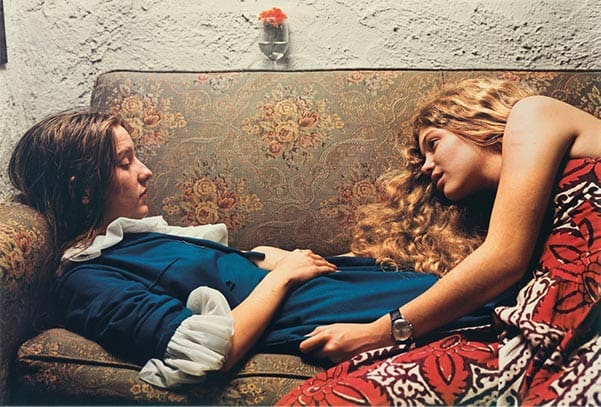
William Eggleston Quotes on Technique
I have always assumed that the abstract qualities of the photographs were very obvious. For instance, I can turn them upside down and they’re still interesting to me as pictures. If you turn a picture that’s not well organized upside down, it won’t work.
A picture is what it is and I’ve never noticed that it helps to talk about them, or answer specific questions about them, much less volunteer information in words. It wouldn’t make any sense to explain them. Kind of diminishes them. People always want to know when something was taken, where it was taken, and, God knows, why it was taken. It gets really ridiculous. I mean, they’re right there, whatever they are.
I just wait until [my subject] appears, which is often where I happen to be. Might be something right across the street. Might be something on down the road. And I’m usually very pleased when I get the image back. It’s usually exactly what I saw. I don’t have any favorites. Every picture is equal but different.
I never think of [a photograph] beforehand. When I get there, something happens and in a split second the pictures emerges.
Something new always slowly changes right in front of your eyes – it just happens.
Until I see it. It just happens all at once. I take a picture very quickly and instantly forget about it.
You want to make the photograph work in every way possible. Doesn’t matter where it is in the world.
I think with being blind the one thing you would have going is that you could still feel things, see your way around so to speak. And if you had had the experience of seeing at one time in your life, then you would know what it was like and be able to function. I’ve said this before, I think I could really photograph blind if I had to.
I quite frequently don’t look through the camera, which is very close to being blind.
I do have a personal discipline of only taking one picture of one thing. Not two. I would take more than one and get so confused later. I was trying to figure out which was the best frame. I said, this is ridiculou – I’m just going to take one.
I only ever take one picture of one thing. Literally. Never two. So then that picture is taken and then the next one is waiting somewhere else.
William Eggleston quotes
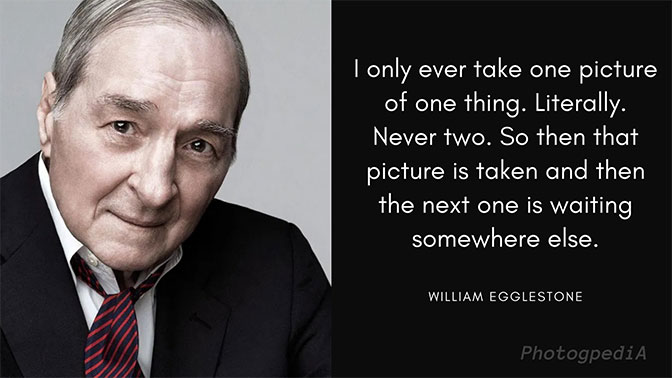
Cameras and Film Photography
I don’t think about what camera I should use that much. I just pick up the one that looks nicest on the day.
There’s plenty of film out there, and quadrillions of cameras that use film-I don’t think it makes much sense not to use it. The thing that’s going out is the manufacturing of the paper. Incidentally, all these years my wife has told me that I’m color-blind.
I don’t think much about the digital world… because I am in the analog world!
Influences and Other Photographers
I had an old Canon and a Leica, but I didn’t know the first thing about photography. Never learnt it off anybody either. It quickly came to be that I grew interested in photographing whatever was there wherever I happened to be. For any reason.
And what we called photojournalism, the photos seen in places like Life magazine, didn’t interest me either. They were just not good-there was no art there. The first person who I respected immensely was Henri Cartier-Bresson. I still do.
My friend who was also interested in photographing, one time he bought many books containing photojournalism pictures. To me they were not interesting. But then I saw this one [Henri Cartier-Bresson’s ‘Decisive Moment’] and oh my God, this is not photojournalism – this is great art. Compositions, obvious knowledge of painting… and the way of composing, and they’re still great.
I couldn’t imagine doing anything more than making a perfect fake Cartier-Bresson. His were the first pictures I’d seen which weren’t just straight-on pictures like everybody else’s. He had angles like Degas or Toulouse-Lautrec.
Black-and-white photography, which I was doing in the very early days, was essentially called art photography and usually consisted of landscapes by people like Ansel Adams and Edward Weston. But photographs by people like Adams didn’t interest me.
The only pictures I like are the ones I’ve taken.
I don’t really look at other people’s photographs at all. It takes enough time to look at my own.
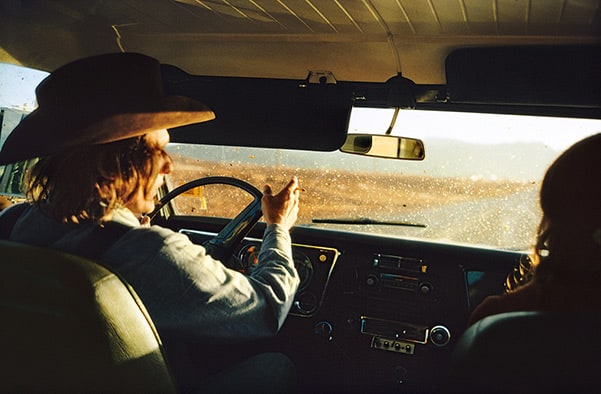
What’s your Favorite William Eggleston Quote?
Have a favorite William Eggleston quote from the list? Let us know in the comment section below.
Don’t forget to bookmark this page, or print it out, and refer to it next time you need some inspiration. Also, don’t forget to share it with others through the usual channels (social media, forums, websites, etc).
To see more of Eggleston’s wonderful color photography, check out the image archive on the William Eggleston Foundation website.
Looking for more words of wisdom from master photographers? Visit the quotes section of Photogpedia for more great photography quotes.
Related Quote Articles:

